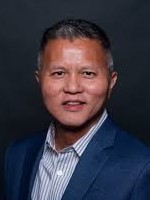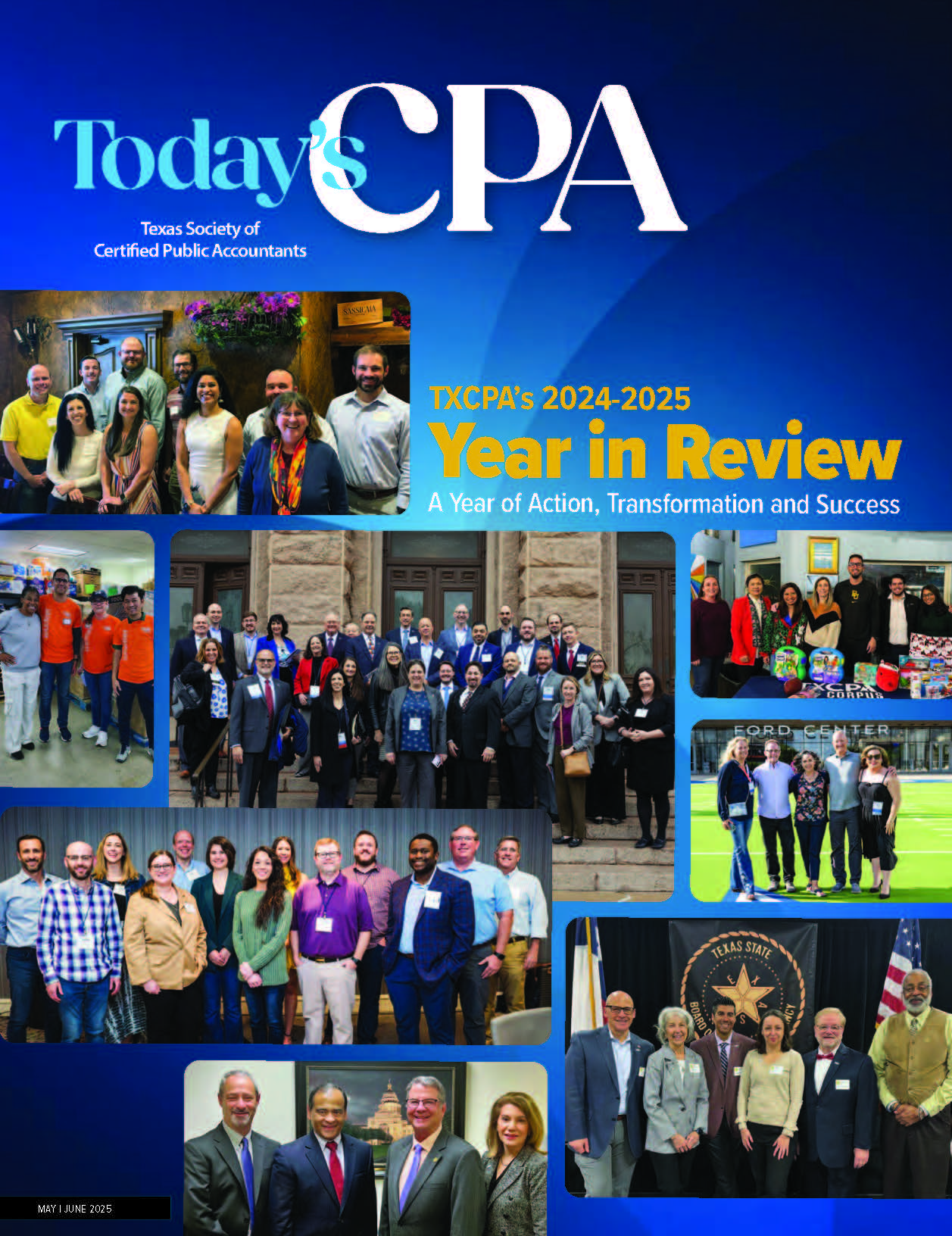June 11, 2025
How Accountants Can Embrace an Entrepreneurial Spirit
By Derrick Bonyuet, Ph.D., CFA, CFP, CPA
The advent of AI-driven technologies has resulted in numerous tools such as ChatGPT, ChatSonic and Bard, which threaten the existence of many professionals. Accountants are not immune to this threat, as many of their tasks can be automated.
As a result, accountants must be ready to reinvent themselves or even start their own business. This article provides a framework that many accountants can follow to assess their readiness to start their own venture.
Background
A study conducted by researchers from the University of Pennsylvania and OpenAI found accountants are among the professionals most susceptible to being impacted by the capabilities of generative artificial intelligence, as at least half of accounting tasks can be completed much faster with this technology. The study highlights the need to be prepared for potential economic disruption (Elondou, Manning, Mishkin & Rock, 2023).
Therefore, accountants must be prepared by assessing their options. In this regard, the World Economic Forum is a strong advocate of upskilling and reskilling (Zahidi, 2020). Upskilling refers to acquiring new skills to do the current job better. Reskilling involves learning new abilities to take on a different job role or function.
Another approach that accountants may want to consider is to start their own venture. Of course, becoming an entrepreneur is easier said than done. In fact, this may represent a challenge, as entering into an entrepreneurial venture is a risky task. Research has found that a high tolerance for risk is a key predictor for becoming an entrepreneur (Segal, Borgia & Schoenfield, 2005). Most accountants exhibit low risk tolerance, as they are trained to be conservative. However, their lack of risk tolerance is compensated by their skills and abilities that enable them to succeed in most business settings.
First, precisely because of accountants’ risk aversion, they keep a laser focus on scoping risk elements and other challenges that may threaten a business. In addition, because they understand how value is generated in an enterprise, they can identify what resources are required and how these resources should be allocated to yield an acceptable return.
Accountants can also determine the best funding sources and how capital structure can be optimized, then set projections under different scenarios to understand their potential profitability and cash flow. In the end, accountants don’t need to abide by that adage “fake it until you make it,” which is common among many entrepreneurs, as accountants truly understand business performance.
Do You Have What It Takes to Be an Entrepreneur?
Becoming an entrepreneur may have a different meaning for different people. For purposes of this article, we will define entrepreneurship as the launch of a small business venture. Therefore, this definition involves anybody who takes the risk to develop and implement a business.
In addition to a high tolerance for risk, research has found individuals must have a desire to become self-employed and the confidence to do so in order to succeed as entrepreneurs (Segal, Borgia & Schoenfield, 2005). Also note that being an entrepreneur does not mean one must have the ability to create something. Rather, it is the ability to see the economic potential of something.
According to Burch (1986), entrepreneurs exhibit most of the following personality traits:
- A desire to achieve, which is reflected by a strong determination to overcome problems and start a successful venture.
- Hard work, as launching a business may require working long hours.
- Nurturing quality so entrepreneurs can drive the venture until it can stand alone.
- Acceptance of responsibility, as entrepreneurs must be ready to accept responsibility for their ventures.
- Reward orientation, as entrepreneurs expect to be rewarded for their hard work and this may come in different forms, including money, recognition and respect.
- Optimism, which is the basis of an entrepreneur’s philosophy that anything is possible.
- Orientation to excellence since entrepreneurs often strive to achieve something that is outstanding.
- Organization, which enables entrepreneurs to bring together all components needed for a successful venture.
- Profit orientation, which represents the benchmark to measure their achievement and performance.
Burch also discusses other elements that may describe whether an individual has an entrepreneurial capability, such as the desire to be independent, free and not subject to control by other people, the desire to seek opportunity, and the tendency to rely on intuition when making decisions rather than depending on a quantitative analysis.
So, How Do You Start Your Entrepreneurial Journey?
Before embarking into an entrepreneurial venture, it is important to conduct a personal evaluation. Such an assessment will allow future entrepreneurs to understand their personal goals, like what they enjoy doing with their time, what they are good at, and what hobbies or interests they may have that are marketable.
This personal evaluation should also ensure potential business ideas are compatible with personal goals. As ideas start flourishing, it is critical to convert these ideas into opportunities.
An approach that may help with this task is design thinking, which is centered on the customer so a deep understanding of what end users want is acquired. Design thinking is a process that starts with problem definition. Multiple options are then created, considered and further refined to finally come up with a winning solution. Business evaluation comes next, which will help assess the feasibility of the business idea. As a result, research must be conducted to gain a thorough understanding of the product or service, along with the expected market to be served.
The final outcome of this phase is the business plan, which is a document that defines the business and explains in detail how the venture will operate, who will manage the business, financial projections and required funding. The Small Business Administration (SBA) provides valuable resources to all small business owners on their site (www.sba.gov), including how to pick a location, how to incorporate, how to choose a business name, how to write a business plan, and funding sources.
Some Actual Cases
Lewis Bryan, a CPA with over 30 years of work experience, decided to start his own business in the shipping industry in the early 2000s. Lewis explains the main reason behind his decision was the pursuit of financial independence. He wanted to get to a point to stop working for an employer and, instead, have more say in the structure of his financial situation. In other words, he wanted to be his own boss.
Lewis asserts his accounting background and experience in business and finance were important, as they taught him the basic steps to start a business like how to put together a business plan, how to prepare a financial budget and how to present this information to a financial institution to get the funding needed for his business venture. Lewis’ advice for future entrepreneurs is to stay present. You need to see your customers, talk to them, understand what they need or not. It is important to observe what is working and what changes need to be made, quickly and effectively.
Luis Angarita is not only an exceptional accountant but also a great entrepreneur. As a partner with a Big Four accounting firm, Luis was chosen to lead the executive committee for the entire Latin American region. He was also named president of the quality review board for four years. He attributes his success to his ability to connect with people. This is how he discovered helping others to find purpose was his goal. He then studied and got certifications in different areas such as accelerated learning, neuroscience, professional speaking, and financial coaching, and he became very active in social media. He also partnered with a well-recognized professional speaker and motivator who assisted him in transitioning into this new business.
Luis believes accountants are well positioned to succeed in any business given their ability to manage risks. No business is free of risk. Also, accountants’ critical mindset enables them to follow their intuition more effectively. Last, accountants are process-oriented, which is a critical skill when launching a new business. Luis’ advice for all accountants who desire to start their own business is to conduct a self-assessment to understand not only their strengths and weaknesses but also their purpose.
Aileen Yu is another accountant who, after spending 15 years working for a major corporation, realized climbing the corporate ladder was not her goal. She realized how much she wanted to do something she could enjoy and give back to the community. She knew she always wanted to be in the education field helping children to succeed and be better prepared for the world. That’s how she decided to start a tutoring business. Aileen explains her accounting background helped her a lot in making rational and good decisions.
When being asked about her past mistakes, Aileen recalls suffering what she calls analysis paralysis. She advises anybody who wants to start a business to have some sort of broad criteria and then set a timeline for which different milestones must be achieved. Last, do not be afraid of making mistakes. Chances are someone has done the business successfully so you can too.
Conclusion
Accountants are often seen as not the right people to start a business. However, accountants’ risk aversion works quite well to identify potential risks that are present in any business, especially in a new venture. Accountants’ education and training have also provided them with the ability to implement actions to mitigate these risks.
In addition, accountants are process-oriented people and possess an ability to identify gaps in processes. This is critical as a new business will require new processes. Accountants’ critical mindset and professional judgement also enable them to follow their intuition in a safer manner. There is no doubt accountants are well capable of starting a business. It’s just a matter of making this decision and moving forward!
About the Author: Derrick Bonyuet, Ph.D., CFA, CFP, CPA, is a clinical assistant professor of accounting in the McCombs School of Business at The University of Texas at Austin. He teaches Intermediate Accounting and Financial Statement Analysis. He is currently serving as the acting CFO of Hazel Aero, an early-stage startup working to design the new generation of search-and-rescue aircraft. Contact him at derrick.bonyuet@gmail.com.

Thanks to the Sponsors of Today's CPA Magazine
This content was made possible by the sponsors of this issue of Today's CPA Magazine:






















